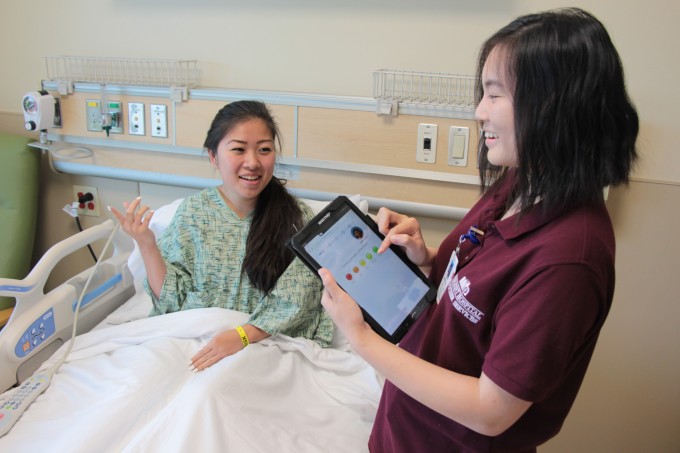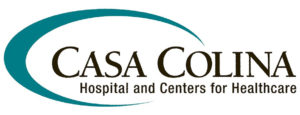Feature
Wired Hospitals: Methodist Hospital of Southern California and Gamification Systems
An innovative way to collect patient feedback and award nurses for their efforts

Your patient rates the care you just provided. Do they think you did well? If so, you’ll get a “PECK.” No, it’s not a kiss on the cheek, but rather an acronym for “Providers Empowered by Compassion and Kindness.”
The PECK is the centerpiece of a staff recognition gamification system called Wambi, after an East Asian bird that also appears in the company’s logo. A growing number of healthcare facilities, including Methodist Hospital of Southern California, are now using Wambi to improve engagement, motivation and patient satisfaction. The photo above shows a hospital volunteer conducting a five-question Wambi survey with a patient.
More Than Just a Game
So, what exactly is “gamification”? As the name implies, it’s a system that uses game-like elements, such as goals and scoring points, to model and reward desired behavior. Gamification is grounded in behavioral learning theory, and research suggests that it can have many positive effects. In a 2016 online paper, Mayo Clinic’s Bernadette Keefe, M.D., wrote that games can “tap our considerable capacity for cooperation, resilience, focus, drive, competition and creativity.”












